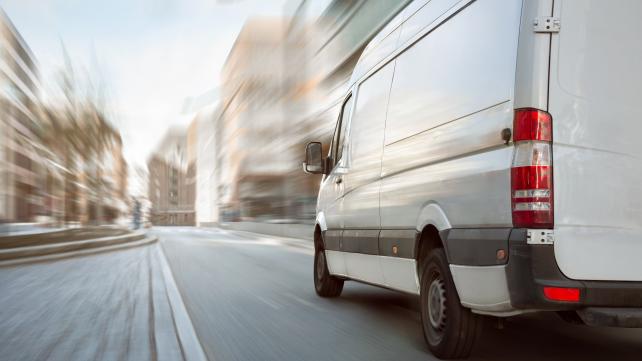
Our Community Response to Preventing Human Trafficking
By Mahasin D. Shamsid-Deen
“ Righteousness is not that you turn your faces toward the east or the west, but [true] righteousness is [in] one who believes in Allah, the Last Day, the Angels, the Book, and the Prophets and gives wealth, in spite of love for it, to relatives, orphans, the needy, the traveler, those who ask [for help], and for freeing slaves; [and who] establishes prayer and gives zakāh; [those who] fulfill their promise when they promise; and [those who] are patient in poverty and hardship and during battle. Those are the ones who have been true, and it is those who are the righteous.
The Muslim community in the US and Canada may not be large, but we have much more power and influence than we use in a consistent manner. This is especially true when it comes to the issue of preventing slavery and human trafficking. Although this is a global problem, its continuation is perpetrated by a complete lack of response by the population. The only way to effect change in the world is to start changing it! This begins at the most basic level of reading the Qur’an and understanding what Allah, The Most High, commands us to do. The Qur’an is a guide for all mankind, and the answer to our human problems and failings lies within its signs.
Remind the believers
- Imams and leaders can use the Qur’an and the life example of Prophet Muhammad, peace and blessings be upon him, to remind us of our duties as Muslims toward other human beings. These reminders teach us that our lives are well-rounded, significant and impactful. Islam reminds the believer to look out for those who are poorer, orphaned, or experiencing hardship. Generosity and kindness were personal attributes of the Prophet that we try to emulate. He was reported to have told the believers, “The best of you is the one who is of most benefit to others.” This is a reminder of our human interconnectedness.
Educate the community
We cannot respond to the issue of modern-day slavery or human trafficking without first understanding the statistics, so the full significance and impact of its existence is understood. Muslims, collectively and individually, can educate themselves by checking out the US State Department reports on Trafficking of Human Persons.
Knowledge helps us formulate a response so we can work collectively to achieve the balance of good in the society. The Prophet told us, "The world is beautiful and verdant, and verily God, be He exalted, has made you His stewards in it, and He sees how you acquit yourselves."
Protect the Vulnerable
Agencies that track and report on modern-day slavery and human trafficking reveal that victims are often targeted because they may have behavioral or mental health issues, low self-esteem, use or abuse substances, live in poverty, are involved in gang activity, or have a vulnerable immigration status.
Immigrants, as well as religious and ethnic minorities, may experience bullying that makes them susceptible to these issues. We cannot ignore the needs of the more vulnerable amongst us. In Islam, it is our collective responsibility to ensure the safety and well-being of each other. Thus, the community needs to have programs in place that offer a safety net for the vulnerable. This may include counseling, food kitchens, youth mentoring, gang prevention initiatives, job training and free or reduced legal advice. In the Prophet’s last sermon, he said, “O People, regard the life and property of every Muslim as a sacred trust…”
Don’t be Naïve about Radicalization
Muslim communities must work to enforce standards of good behavior as outlined in the Qur’an and life example of Prophet Muhammad, peace and blessings be upon him. Human traffickers are good at manipulation. Extremes within the Muslim community open the door for religious exploitation leading to someone being trafficked.
American Muslims who complain that everything about the “West” is evil or wrong are not only being hypocritical about their own presence in these lands but may also foster a climate of radicalization that can be manipulated in a negative manner.
For instance, in 2022, a young Muslim woman from Alabama was denied reinstatement of her citizenship after leaving the US to join ISIS years prior. She was a victim of trafficking experiencing both sexual and labor coercion. Instances like these remind us to be careful about the climate and messaging within our own communities. We must speak up and against tendencies that go against the spirit of Islam. Human trafficking is a great hardship upon the victim. The Prophet instructs us, "Whoever relieves his brother of a trial or a difficulty in this life, God will relieve him of a trial in the next life."
Partner with Others
- Muslims must advocate for victims of human trafficking. Our influence is broadened when we work as a group to achieve our goals. Inactivity will not effect change.
- Report suspected trafficking in your circle of experience (neighborhood, workplace, school, etc.).
- Partner with human trafficking task forces, coalitions or local anti-trafficking organizations to prevent, reduce. and respond to trafficking.
- Be aware of local service providers for victims.
- Do not support or buy from companies that use child labor in the production of their products. A list of these companies can be found on the internet.
- Stay aware and respond to instances of human trafficking in the news.
- Sponsor workshops and information sessions to raise awareness of the problem.
- Mentor young people to help with their self-esteem and connectedness to the community.
- Monitor the challenges of the more vulnerable members of our community.
- Sign the Joint Declaration of Religious Leaders Against Modern Slavery.
The Prophet said, “Each one of you is a shepherd and each one of you shall be asked of his sheep."
https://www.soundvision.com/article/our-community-response-to-preventing-human-trafficking?eType=EmailBlastContent&eId=c977ff02-9f3b-4349-ac23-b3f808c774cf&eType=EmailBlastContent&eId=4332f4c6-0578-4f54-b941-8533412573af

